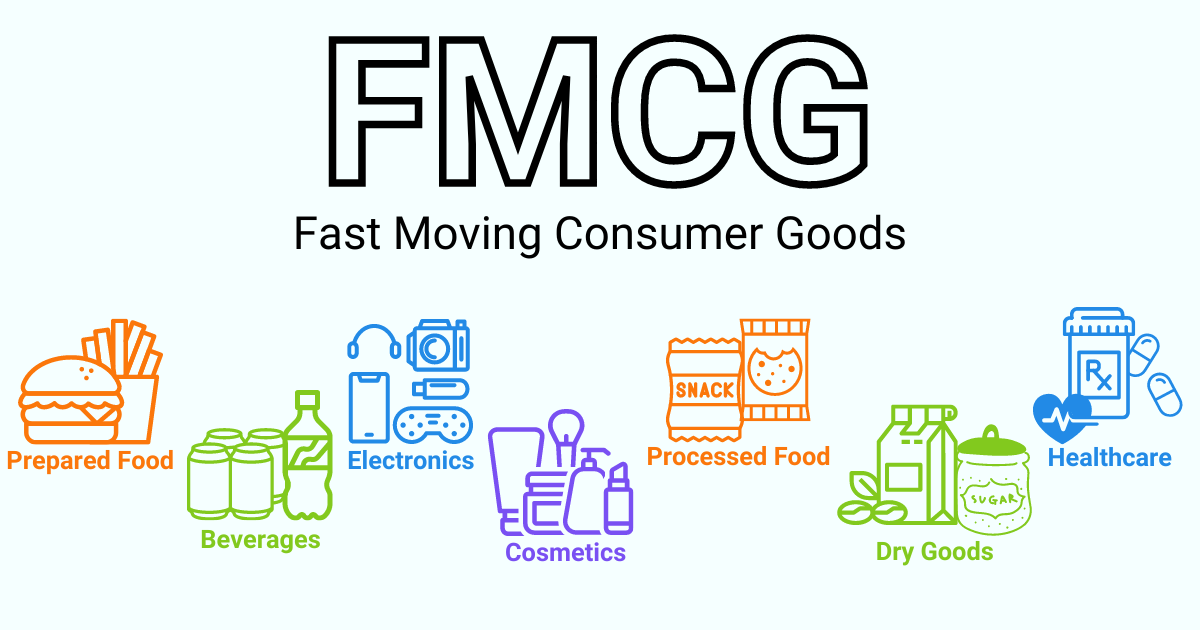
Biggest Challenges For FMCG Distributors in 2024
First of all, FMCG stands for Fast-Moving Consumer Goods, which refers to products that are sold quickly at (relatively) low prices. To separate these from your average CPG (Consumer Packaged Good) they need to meet 3 qualifications;
- Be high in demand
- Have a short shelf life
- Experience frequent purchases
Fast-Moving Consumer Goods (FMCG), distributors play a pivotal role in ensuring products reach consumers efficiently. As we venture into 2024, the FMCG distribution sector faces a myriad of challenges, propelled by evolving consumer preferences, technological advancements, and global uncertainties. Let’s delve into the key hurdles confronting FMCG distributors and strategies to overcome them in this SEO-friendly guide.
- Supply Chain Disruptions: FMCG distributors grapple with supply chain disruptions stemming from various factors like natural disasters, geopolitical tensions, and pandemics. These disruptions lead to inventory shortages, delayed deliveries, and increased costs. Implementing robust supply chain diversification strategies, leveraging predictive analytics, and fostering strong supplier relationships are crucial to mitigate these challenges.
- Rising Transportation Costs: Escalating transportation costs, driven by fuel price hikes and regulatory changes, pose a significant challenge for FMCG distributors. To counteract this, adopting fuel-efficient transportation methods, optimizing delivery routes through AI-powered logistics solutions, and exploring alternative transportation modes such as rail and waterways can help minimize costs while ensuring timely deliveries.
- E-commerce Expansion: The rapid growth of e-commerce continues to reshape the FMCG distribution landscape. Distributors must adapt to the changing consumer purchasing habits by optimizing their online presence, enhancing digital marketing efforts, and investing in e-commerce logistics infrastructure. Embracing omnichannel distribution models enables distributors to reach consumers through multiple touchpoints, fostering brand loyalty and market penetration.
- Data Security Concerns: With the proliferation of digital transactions and data-driven operations, FMCG distributors face heightened cybersecurity threats. Safeguarding sensitive customer information, securing online transactions, and implementing robust data encryption protocols are imperative to protect against cyberattacks. Regular security audits and employee training programs ensure compliance with data protection regulations and bolster cybersecurity defenses.
- Sustainability Imperatives: Consumers are increasingly prioritizing sustainability, prompting FMCG distributors to adopt eco-friendly practices throughout their operations. Implementing sustainable packaging solutions, reducing carbon emissions through efficient transportation, and sourcing ethically produced goods resonate with environmentally conscious consumers. By aligning with sustainability initiatives, distributors can enhance brand reputation and foster long-term customer loyalty.
- Competition from D2C Brands: The rise of Direct-to-Consumer (D2C) brands presents a formidable challenge to traditional FMCG distributors. These digitally native brands leverage data analytics, social media marketing, and personalized customer experiences to bypass traditional distribution channels. To stay competitive, distributors must embrace digital transformation, innovate distribution strategies, and forge strategic partnerships with D2C brands to access new market segments.
- Regulatory Compliance: Compliance with evolving regulatory frameworks poses a persistent challenge for FMCG distributors, particularly regarding product safety standards, labeling requirements, and import/export regulations. Maintaining compliance necessitates staying abreast of regulatory changes, conducting regular audits, and establishing clear communication channels with regulatory authorities. Collaborating with legal experts and industry associations facilitates adherence to regulatory guidelines and minimizes legal risks.
In conclusion, FMCG distributors face a complex array of challenges in 2024, ranging from supply chain disruptions to cybersecurity threats and sustainability imperatives. By embracing innovation, leveraging data-driven insights, and fostering agility, distributors can navigate these challenges and emerge stronger in an ever-evolving market landscape. Adaptability, resilience, and a customer-centric approach are the hallmarks of success for FMCG distributors in the digital age.
